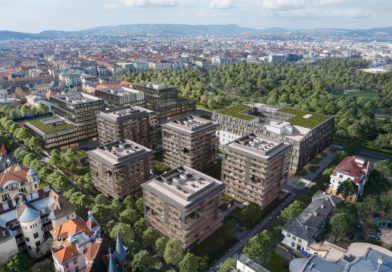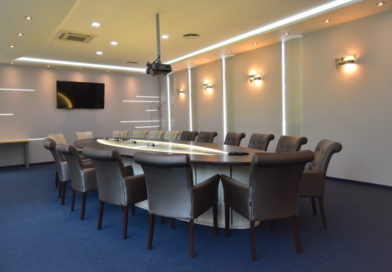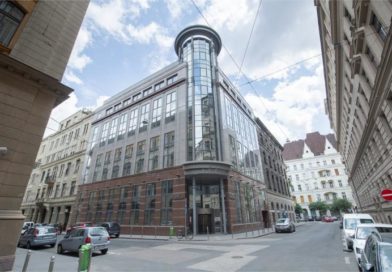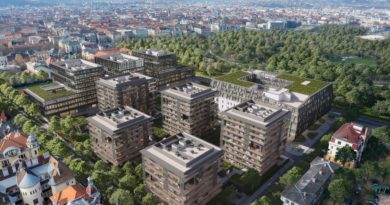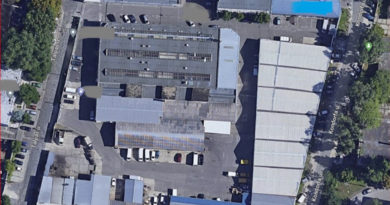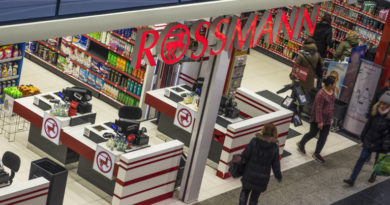Recovery on the Budapest real estate market is still to come
Jones Lang LaSalle has published its Budapest City Report Q1 2012 focusing on the latest real estate trends of the Budapest real estate market. The publication reports stagnating real estate markets including office, retail and industrial leasing markets due to the continued economic uncertainty. Furthermore, despite there being a number of assets for sale in Budapest there were no open market transactions in this period.
On the Budapest office marketonly one smaller office building was handed over in Q1 2012. With the completion of the 2,350 sq m IQ Offices the modern office stock increased to 3,175,800 sq m. Following the decline registered last year, vacancy rate rose from 19.2% to 20.4%. The slight jump was mainly a consequence of larger occupiers’ historic space rationalisation efforts, resulting in newly vacated office space. We expect limited new office stock throughout 2012 with a total of 20,150 sq m office space being delivered. There is only one new development scheduled to be completed in 2013 with 15,500 sq m office.
Following the strong occupier demand of 2012, there was reduced demand in Q1 2012 with 53,252 sq m take-up, down by 29% compared to Q1 2011. New transactions took 40.5% (21,565 sq m), lease extensions took 38.7% (20,600 sq m) while expansions took 5.8% (3,080 sq m) of the total take-up. The largest transaction of the quarter was the 8,150 sq m lease renewal of Vodafone in Arena Corner. According to the forecasts we expect demand to speed up in the second half of the year but the total take up is expected to be lower than last year at around 300,000 sq m.
Office rents remained unchanged with prime rents at 20 Euro/sq m/month , while average office rents move between 10.5 – 13.5 Euro/sq m/month.
The performance of the Budapest retail market in Q1 2012was similar to the previous year. Those international brands who are already present on the Hungarian market do not plan any significant expansions while local retailers with lower size requirements (less than 200 sq m) are more active on the leasing market. There are several new brands monitoring the market waiting for the optimal time and location to open their first stores in Hungary.
Currently there are 28 shopping centres in Budapest with 772,500 sq m retail space while the secondary cities share 36 centres with 550,000 sq m. The most significant retail development is the new phase of Árkád in Budapest (20,000 sq m) along with the renovation of the first phase. This year there will be approximately 30,000 sq m new retail space delivered to the Budapest market; Váci1 in the city centre, Hegyvidék Shopping Centre in the 12th District and the delayed CET project in the 9th District.
Shopping centre rents are on the scale of 20-50 Euro/sq m/month. Retail unit rents in the city centre are at 60-90 Euro/sq m/month in Váci street and 40-50 Euro/sq m/month along Andrássy út.
Very limited development plans are characterising the industrial market in Budapest and its surrounding areas. In 2012 there are only built-to-suit or preleased projects in the pipeline; Dél-Pesti Business Park by WING and Airport City 3 by Ablon. There was no new completion in Q1 2012 the industrial stock remained stable at 1,806,350 sq m. Vacancy rate increased to 21.1%, caused by similar reasons to the office market; some large occupiers have vacated or rationalized their leased spaces.
The industrial demand was much lower compared to the first quarter of 2011. Lease transactions concluded were 47,690 sq m in total, 60% of which were new lease contracts and the remainder are lease extensions (19,135 sq m). The latter was the largest transaction of the quarter signed by Fiege in ProLogis Harbor Park.
There is still pressure on the industrial rents in Budapest as tenants continue to optimize their leases and decrease their space. Average rents in industrial parks are between 3-4 Euro/sq m/month while centrally located city logistic parks offer 4,5-5 Euro/sq m/month rents.
Finally, there was no significant move on the Budapest investment market either. However there are several assets on the market but there were no investment transactions during the first quarter. Financing will be limited in 2012 as a consequence of the general de-leveraging and the evolution of financial markets but also the specific situation of Hungary on a macro-economic and political front. Further developments on the investment market are dependant upon the evolution of the financial markets in view of the sovereign debt crisis and downgrades in the Euro zone. Based on our assessment and relative pricing, we keep our views unchanged with our prime office yield around 7.50%-7.75, prime logistic at 9.00%-9.25% and prime retail at 7.00-7.25%.


